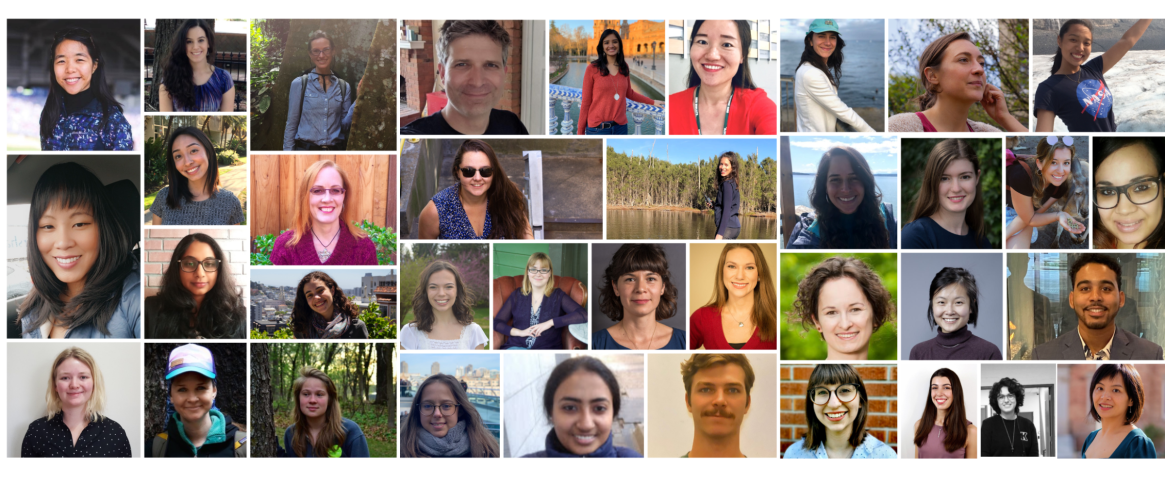Are you a graduate or undergraduate student looking for guidance on how to establish a career in science writing? Are you curious about how senior science writers do their jobs? Find out through the NASW Mentoring Program, which will pair graduate and undergraduate students with established science writers during the American Association for the Advancement of Science (AAAS) annual meeting, March 2-5 in Washington. D.C.
To apply, complete the mentoring application form. The application deadline is Thursday, February 16, 2023.
Please note that successful applicants must attend an orientation, 3-4 p.m. on Friday, March 3. The mentoring program does not provide funding for travel to AAAS.
The program is limited by the number of mentors who volunteer. Participants are selected by the NASW Education Committee, and spots generally are assigned in the order in which applications are received.
Mentors and mentees will decide together how to spend their time. Some mentors may ask students to shadow them for a day or half-day, showing them how they select talks and press conferences for coverage. Others may choose to meet over lunch or breakfast and be available for questions throughout the meeting.
To gain access to press-only areas at the meeting, students must register separately with the AAAS Newsroom (AAAS press registration information).
To be eligible to participate, students must:
- Pre-register for our NASW program at https://forms.gle/J2QxzsZRsz9RWPo66
- Register for the AAAS meeting (regular registration or press registration)
- AND be current NASW members or submit a membership application by Feb. 26, 2023, i.e. your complete, paid applications for NASW membership must be received by that date (join here)
Questions? Email education@nasw.org.
NASW mentee dos and don'ts
- DO be clear about what you hope to learn from this experience.
- DO be proactive. It is the mentee’s responsibility to maintain contact with the mentor and schedule any future interactions.
- DO ask questions.
- DO respect the mentor’s time. Schedule mutually convenient ways and times to check in (video, chat, email, etc.) for any follow-ups. We understand that schedules change, often unpredictably. If you cannot make a deadline or follow-up, let the mentor know as soon as possible.
- DON’T drop the ball. Strive to respond to communications in a timely manner and follow through on commitments.
- DON’T hesitate to contact mentor@nasw.org if you encounter a problem, have concerns, or if something impacts your ability to be part of the program
NASW mentor dos and don'ts
- DO model professional behavior.
- DO suggest resources, materials, or other connections.
- DO share information about your background, skills, and interests.
- DO offer constructive, meaningful advice and feedback.
- DO ask questions before giving advice. Take time to understand where someone is and where they want to go.
- DO recognize mentee’s milestones and achievements.
- DO respect the mentee’s time and expectations of the program.
- DON’T make assumptions.
- DON’T drop the ball. Strive to respond to communications in a timely manner.
- DON’T do the mentee’s writing for them.
- DON’T forget to exercise empathy, patience, and respect for mentee.
Questions? Contact NASW Education Committee Co-Chairs Czerne Reid and Ashley Yeager and Internship Fair Coordinator Berly McCoy at education@nasw.org. Thank you to Czerne, Ashley, Berly, and other NASW member volunteers who spearhead our student programming year after year. And tag #SciWriStudent in your social media posts to join the conversation.
NASW student programming is organized by the National Association of Science Writers, and is not a program of the American Association for the Advancement of Science. However, NASW extends its thanks to AAAS for its partnership over the years for providing meeting spaces during past Annual Meetings for NASW student programming. For more information, share our announcement: https://www.nasw.org/article/nasw-science-writers-annual-journalism-internship-fair-and-mentoring-opportunities-student-early-career-members
Founded in 1934 with a mission to fight for the free flow of science news, NASW is an organization of more than 3,000 professional journalists, authors, editors, producers, public information officers, students and people who write and produce material intended to inform the public about science, health, engineering, and technology. To learn more, visit www.nasw.org

